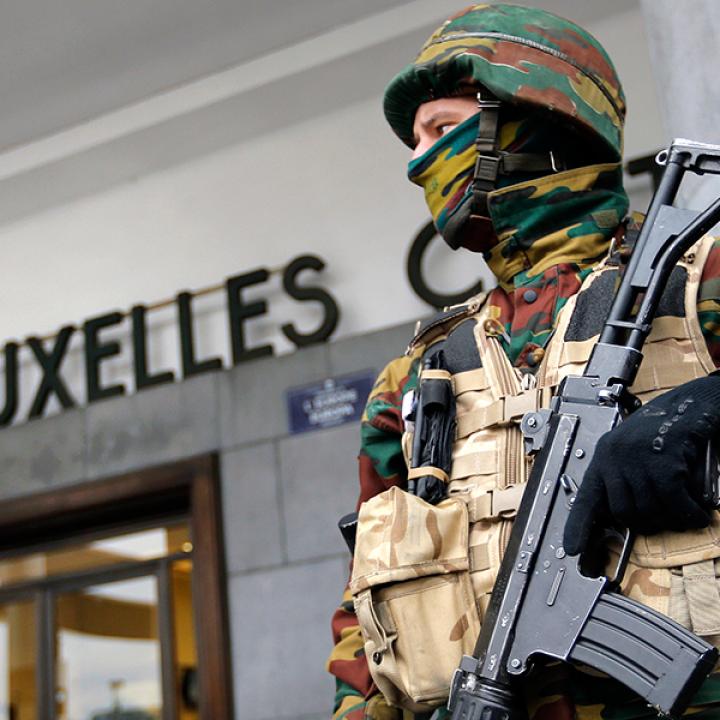

Because the Islamic State and other terrorist adversaries have become increasingly disciplined and well-coordinated, Western governments need to be even more so to prevent further attacks.
A week after the attacks early last year in Paris against the magazine Charlie Hebdo and a kosher grocery, Belgian police officers were fired on as they executed a search warrant in the town of Verviers. Officials learned that the assailants were members of a terrorist cell that had been planning a significant attack on Belgian police officers or civilians. The incident changed the way counterterrorism officials perceived the Islamic State threat in Europe and made clear that Belgium itself had a greater problem on its hands than it realized.
Before the plot was disrupted, the United States Department of Homeland Security would later explain, nearly all of about a dozen Islamic State plots and attacks in the West had involved lone assailants or small groups. But, the report presciently warned, "the involvement of a large number of operatives and group leaders based in multiple countries in future ISIL-linked plotting could create significant obstacles in the detection and disruption" of new plots.
Indeed, that is now the case, and as the investigation of the even more brutal November attacks in Paris showed, Belgium is a major source of the threat. The attacks on Tuesday in Brussels raised the most serious questions about how prepared the nation was for that threat.
Belgium has two intelligence agencies, a federal police department, many local police departments and a federal Coordination Unit for Threat Analysis. The federal police have begun an initiative that has trained nearly 18,000 police officers to recognize the signs of radicalization.
The federal police maintain a consolidated list of terrorism suspects focused on some 670 people who have gone to fight in Syria and Iraq (and, more recently, Libya), those who have returned from fighting abroad, those who seem inclined to become foreign terrorist fighters and those who radicalize and support them. Another list, focused on about 100 purely criminal cases, may be combined with that because of the increasing overlap between the two. Belgium intensified efforts to prevent young people from becoming radicalized over the last 18 months, with federal security agencies coordinating with district task forces to share information.
And yet the system is still a work in progress. There aren't enough police officers in Molenbeek, the Muslim-majority municipality in Brussels that has been linked to most Belgian terrorist cases and where Salah Abdeslam, the lone surviving suspect in the November attacks in Paris, grew up and was captured in a police raid last week. After the November attacks, 50 more officers were assigned to Molenbeek, but since the local department had 185 empty slots, this still left a huge deficit. Just eight officers are in the community policing group there.
To its credit, the Belgian government quickly instituted 12 new counterterrorism measures after the Verviers raids. Eighteen more were put in place after the Paris attacks. But what is needed are not new programs but full staffing of the existing intelligence and law enforcement agencies, and removal of the walls between intelligence services.
Belgium is not unique in its need to improve. The European Union counterterrorism coordinator recently reported that several member states still have no electronic connection to Interpol on all their border crossings. More to the point, the coordinator bluntly concluded that "information sharing still does not reflect the threat." For example, European databases record only 2,786 verified foreign terrorist fighters despite "well-founded estimates that around 5,000 EU citizens have traveled to Syria and Iraq to join ISIL and other extremist groups," the report said. Worse still, over 90 percent of the reports of verified foreign terrorist fighters came from just five member states.
Europol, the European Union's law enforcement agency, notes that the Islamic State has developed an "external action command" to train operatives in carrying out sophisticated attacks in the West. Our adversaries are disciplined and coordinated. We need to be much more so to fight them.
Matthew Levitt is the Fromer-Wexler Fellow and director of the Stein Program on Counterterrorism and Intelligence at The Washington Institute.
New York Times



